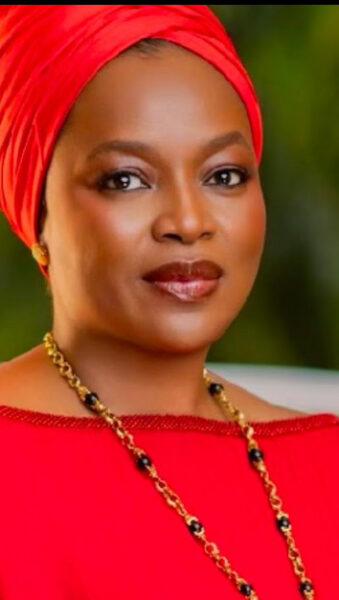1
Nigeria confronts a stark reality: widespread poverty that disproportionately impacts rural women, the unsung heroes driving local economies. This International Day for Rural Women, ROLAND OGBONNAYA highlights the Better Life Program for African Rural Women, spearheaded by Aisha Babangida, and how her initiative is tackling the multifaceted challenges these women face. From limited access to land and healthcare to educational barriers and financial exclusion, the program equips them with the skills and resources to thrive and build a more equitable future.
Each year on October 15th, the world pauses to recognise the vital, yet often overlooked, contributions of rural women. International Day for Rural Women is a day to celebrate their resilience, acknowledge their crucial role in global food security, poverty eradication, and sustainable development, and advocate for policies that empower them to reach their full potential.
For generations, rural women have been the bedrock of their communities. They are farmers, entrepreneurs, caretakers, and community leaders, working tirelessly to sustain their families and contribute to the economic and social well-being of their villages and nation. They cultivate the land, raise livestock, manage natural resources, and often shoulder the burden of household chores and childcare. Despite these significant contributions, rural women frequently face systemic inequalities that limit their access to resources, education, healthcare, and decision-making power.
International Day for Rural Women serves as a crucial reminder of the challenges these women face and the urgent need to address them. It’s a day to highlight their vital role in agricultural development, food security, and poverty reduction; call for policies that promote gender equality, empower rural women, and improve their access to land, credit, technology, and markets; and celebrate their successes and showcase their innovative solutions for sustainable agriculture and community development.
The day also aims to foster discussions and partnerships between governments, civil society organisations, the private sector, and rural women themselves to address the challenges they encounter. Rural women are disproportionately affected by climate change, which exacerbates existing vulnerabilities such as water scarcity, land degradation, and food insecurity. Limited access to transportation, communication, and energy infrastructure further hinders their access to markets, information, and essential services.
Despite these hurdles, rural women possess immense potential to drive positive change. By investing in their education, providing them with access to resources, and empowering them to participate in decision-making, we can unlock their potential and create a more just and sustainable world.
There are many ways to celebrate International Day for Rural Women and support their empowerment. These include: learning about the challenges and contributions of rural women and sharing this knowledge; purchasing products and services from rural women entrepreneurs to support their economic empowerment; and supporting organisations that provide education, training, and access to resources for rural women. Share the stories of rural women and help amplify their voices and perspectives.
International Day for Rural Women has become more than just a celebration; it’s a call to action. By recognising their invaluable contributions and addressing the challenges they face, we can create a future where rural women are empowered to thrive and contribute to a more sustainable and equitable world for all.
Nigeria, a nation of vibrant cultures and abundant resources, faces a paradox: a deep-seated poverty that disproportionately burdens its rural communities, particularly its women. On this International Day for Rural Women, we turn our attention to their often-unheard struggles, a testament to resilience against overwhelming odds.
These women are the bedrock of rural Nigeria, the unsung heroines who tirelessly labour in agriculture, feeding families, and fueling local economies. They are mothers, caregivers, and entrepreneurs, yet they confront a complex tapestry of challenges that perpetuate their poverty and limit their potential.
The sun beats down on Amina, a farmer in a remote village in Niger State, as she tends to her meagre plot of land. Her hands, calloused from years of labour, carefully nurture the seedlings. “We work from dawn till dusk,” she sighs, wiping sweat from her brow, “but the harvest is never enough. The rains are unpredictable, and the soil is tired.”
Rural women like Amina are the driving force behind subsistence farming, toiling on small plots with rudimentary tools. They plant, weed, harvest, and process crops, yet rarely own the land they cultivate. Traditional land tenure systems often favour men, leaving women vulnerable and without the collateral to access loans or investments. Climate change further compounds their woes, with erratic rainfall and rising temperatures devastating crops and livelihoods. The lack of access to improved seeds, fertilisers, and modern farming techniques traps them in a cycle of low yields and abject poverty.
For Safiya, a young mother in Katsina State, healthcare is a distant dream. The nearest clinic is a day’s walk away, and she can barely afford the cost of transportation, let alone the medical fees. “I lost my sister during childbirth,” she whispers, her eyes filled with pain. “There was no one to help her.”
Access to quality healthcare remains a luxury for many rural women. Overwhelmed and under-resourced clinics are often far-flung, making antenatal care, safe delivery, and treatment for common illnesses difficult to obtain. Maternal mortality rates in rural areas far surpass those in urban centres, starkly highlighting the consequences of inadequate healthcare infrastructure.
Education faces similar obstacles. Social norms often prioritise boys’ education over girls’, perpetuating a cycle of illiteracy and limiting women’s access to better employment prospects. Early marriage and teenage pregnancy further truncate their education and futures. “My parents wanted me to get married,” explains Fatima, a young woman from Borno State who was forced to drop out of school at 15. “They said it was better than wasting money on education.”
Financial inclusion remains a distant goal for many rural women. Access to credit, savings facilities, and financial literacy programs is severely limited, hindering their ability to start or expand businesses. They are often relegated to informal, low-paying jobs in local markets, where they face exploitation and volatile prices. Without access to financial resources, they cannot invest in their businesses, improve their living conditions, or secure their children’s education.
The convergence of poverty, lack of education, and limited access to healthcare and economic opportunities renders rural women acutely vulnerable to exploitation, violence, and marginalisation. Traditional practices, such as female genital mutilation and early marriage, persist in some communities, further undermining their health, well-being, and future prospects.
Addressing the plight of rural women in Nigeria necessitates a multifaceted approach that tackles the root causes of their poverty and empowers them to become agents of change. It is not merely a moral imperative but a strategic investment in the future of Nigeria.
In the face of these challenges, the work of organisations like the Better Life Program for African Rural Women, founded by Aisha Babangida, shines as a beacon of hope. As Edwin Uhara, a UN-trained Negotiator from Abuja, notes, “Aisha Babangida, through the Better Life Program for African Rural Women, has been shaping the lives of rural women by equipping them with relevant skills through training and empowerment.”
This empowerment, Uhara emphasises, is carefully tailored to the specific needs of each region, ensuring its effectiveness: “Before deciding on the type of training and empowerment to be offered to a particular region, the Better Life Program first assesses baseline data to ascertain the strengths, weaknesses, opportunities, and threats of the zone. This analysis informs the development of an empowerment program suited to the zone, capitalising on the region’s existing comparative advantages.”
The Better Life Program’s targeted approach aligns with the UN’s recognition of rural women’s critical role in global food production and environmental stewardship. Yet, as a UN report states, “Women and girls in rural areas suffer disproportionately from multi-dimensional poverty… They may be as productive and enterprising as their male counterparts but are less able to access land, credit, agricultural inputs, markets, and high-value agrifood chains and obtain lower prices for their crops.”
Uhara concludes with a call to action: “While I encourage Aisha Babangida to continue her vital work, I also appeal to public-spirited individuals to support this cause for the sake of our shared humanity.”
By providing rural women with the resources and opportunities they need to thrive, we can unlock their immense potential and build a more equitable and prosperous Nigeria for all. The time to act is now, to listen to their silent suffering and amplify their voices, ensuring they are no longer left behind in the pursuit of national progress.







